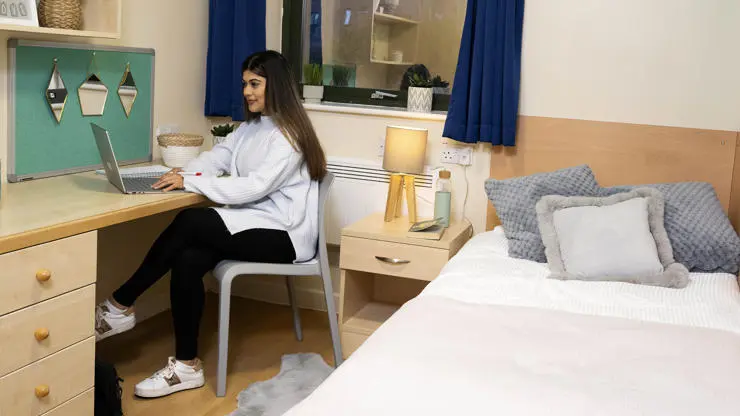Leah, Building Conservation and Adaptation - MSc/PGDip/PGCert Student
For many people, starting university is the first time where you will experience living independently and looking after your own money. Since I started university, I have given myself a weekly allowance of money which I have to stick to.
Here are some tips to help you budget, so that you’re not living off Pot Noodles for most of the semester:

Don't spend your student loan all at once
As tempting as it may seem when your student finance money reaches your bank account, don’t go and spend it all at once. For most people, your rent will need to come out of this payment. If you go and spend every penny in the first week, then you won’t have enough money to pay your rent or to eat.
Make a spending plan
When you receive your money, come up with a plan about how you’re going to spend it. Check the calendar to see how many weeks you’ve got to make it last (it’s probably longer than you’ll originally think). This doesn’t need to be a super detailed plan, it’s just so you’ve got a vague idea of how much money you have, how long it has to last and how much you could have leftover by the time your next payment is due. When calculating this, remember to deduct any bills such as your rent, or your phone bill.
Give yourself a weekly allowance
I personally give myself slightly less money than I could give myself. This means that I’m not spending all of the money in my bank account, and I have a little bit of leeway in case I have any unexpected outgoings or emergencies (for example, giving myself £25 a week when I could have a maximum of £40).
Withdraw your allowance or add it to an app-based mobile bank
A good way to keep track of your spending is to withdraw your allowance each week as cash. For example, if you gave yourself a £30 allowance each week for food and necessities, it’s easy to see when you’re close to your spending limit, as you’ll be running out of cash in your purse/wallet.
If you don’t use cash and pay for everything using your card, app-based mobile banks like Monzo, Starling and Monese make it easy for you to put your money into different pots and put aside money for each week.
Work part-time whilst you study

If you're worried your student loan won't stretch enough to cover your living expenses, you could consider getting a part-time job to give yourself a little extra cash each month. There are lots of jobs available for students, from retail jobs to restaurant and bar work; you can even work for the university as a Student Ambassador.
Budget-friendly supermarkets
Aldi and Lidl are your friends. If I head to either of these with a shopping list, I can easily do a weekly shop for less than £15 and end up with two or three bags of shopping.
Preston market also has some great, budget-friendly options for food. Shop locally for fresh fruit, vegetables, gourmet cheese and organic meat.
Supermarkets often have a reduced section full of great bargains, so it is worth visiting later supermarkets later on in the evening for access to discounted goods. You can always freeze things you won't eat any time soon.
Be mindful of your money
Remember that if you receive money from Student Finance, it has to last you three months. Once your rent has been deducted, you might not have very much left to spend. So just be mindful and before you go and spend hundreds of pounds on clothes. Think to yourself “do I really need this?” and the answer is likely to be no.




